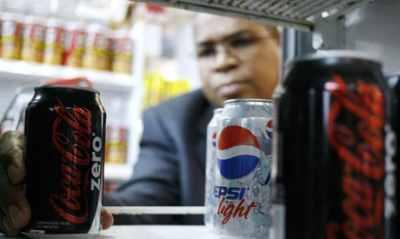
In recent months, Coca-Cola and PepsiCo have had frequent run-ins with regulators and activists over issues pertaining to the presence of harmful chemicals such as lead and cadmium and the adverse impact of caramel.
Yet, consumers have given a thumbs-up to these products, especially in countries such as India. The latter remains a key market for these brands, with volume sales seeing double-digit growth quarter on quarter.
Earlier this month, a US watchdog group, Center for Science in the Public Interest, had released a study, saying it found unsafe levels of the chemical 4-methylimidazole, or 4-MI, in cans of Coca-Cola and Pepsi, besides other beverage brands. High levels of the chemical have been linked to cancer in animals.
...
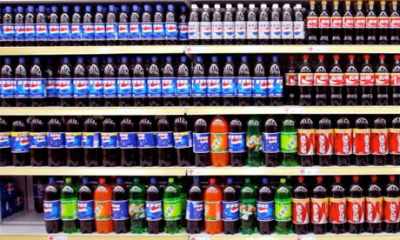
To allay consumer fears, both cola majors had agreed to modify the process of producing caramel (the substance used to impart colour to products) in California to comply with standards there. Coca-Cola also said the modified caramel would be used in the rest of the US and the world.
The Indian unit, however, has not indicated a timeline for usage of the modified caramel. A statement from the company said, "Issues related to logistics and supply are key factors we continue to work on." PepsiCo is awaiting directions from its headquarters in New York.
Also, last week, the National Green Tribunal had expressed concern over presence of heavy metals such as lead and cadmium in discharged effluent samples at a Coca-Cola plant in Jalpaiguri, West Bengal. It had directed that necessary steps be taken to ensure these are not present in the beverage.
...
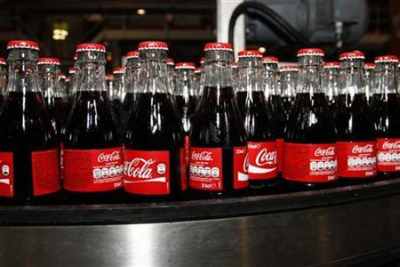
The judge of the tribunal observed "it is quite possible that heavy metals (lead, cadmium) may also be present in the products."
The tribunal had directed the West Bengal Pollution Control Board and Coca-Cola to conduct analyses of water and raw materials used for the purpose, and not only detect the source but take appropriate steps for eradicating the same, so as to avoid any adverse health impacts.
The tribunal had also asked the Central Pollution Control Board to collect and analyse samples of discharged effluents from the said plant.
...
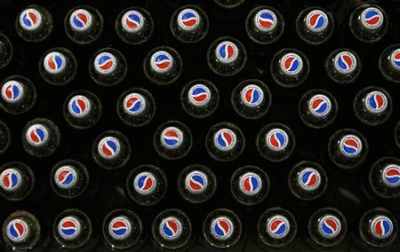
And, yet...
All this apart, for the past 22 quarters, Coca-Cola India has seen growth ahead of many other markets in the Asia-Pacific and African regions. In the December and September ending periods of 2011, Coca-Cola India's volume sales grew 19-20 per cent, while the domestic industry grew 17-18 per cent.
So, too, with PepsiCo, which saw double-digit growth in beverages in the past few quarters.
"Our beverage business has witnessed very good growth in 2011, with brands growing at a healthy double-digit pace. We are confident of maintaining the strong growth momentum in 2012 as well," said Deepika Warrier, executive director, marketing, PepsiCo Beverages.
...
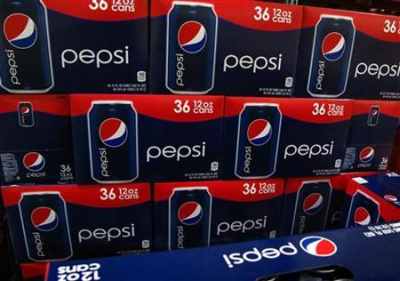
Both Indra Nooyi, global CEO of PepsiCo Inc, and Mukhtar Kent, president and CEO of Coca-Cola Co, have time and again articulated that the next level of growth for them would come from markets such as India, as the North American and European markets see only sluggish growth.
According to market estimates, the carbonated beverages market in India at the moment is Rs 6,000-7,000 crore (Rs 60-70 billion) in size.
The ready-to-drink juice-based market is another Rs 2,500 crore (Rs 25 billion), while the dilutable beverage market (powdered drinks, squashes, syrups, etc), is an additional Rs 500-600 crore (Rs 5-6 billion). All segments are growing in double-digits.
...
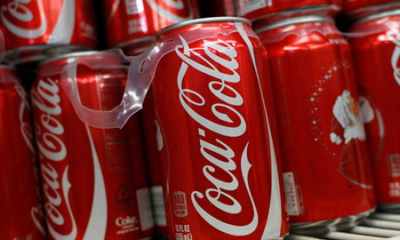
Reasons, plans
Fast moving consumer goods analysts ascribe this trend to the mass nature of the cola category in the country and the tendency of consumers, especially lower down the pyramid, to ignore issues pertaining to health and the environment.
"Consumers who are conscious of their health have already begun to shun colas for better options even in India," says Anand Ramanathan, associate director, KPMG.
"The ones lower down the pyramid, as well as rural consumers, are not as conscious about health and environment. This helps cola companies get their numbers."
...
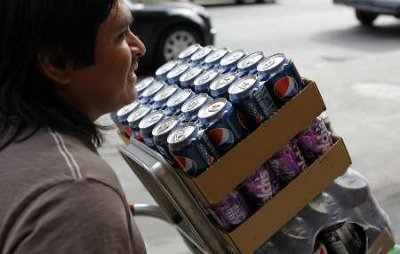
This point is endorsed by Chandra Bhushan, deputy director-general, Centre for Science and Environment, which highlighted in 2003 and in 2006 that both Coke and Pepsi had dangerous levels of pesticides in them. On both occasions, there was an uproar in Parliament, with sales taking a beating for a while.
Bhushan says, "Not many activist groups are campaigning against PepsiCo and Coca-Cola in India. Second, the medical community in the country is not actively voicing their concerns about the impact on health. Plus, they are hardly doing enough to educate people about these issues.
Third, consumption of carbonated drinks is going up in rural India, where awareness levels about what goes into these products and the impact thereof is low. To make matters worse, these companies are also actively promoting these products in these regions to push up sales. This is why their sales figures are growing."
...
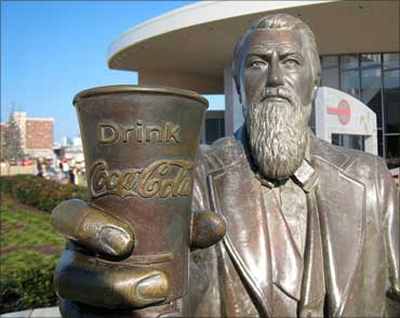
While both Coke and Pepsi do not provide a break-up of their sales figures, analysts estimate rural areas contribute at least 20-30 per cent to their top lines at the moment. Both are looking to take this figure up, with a combination of aggressive distribution and marketing.
Warrier of PepsiCo says, "There is a massive under-served demand for packaged beverages in India.
To address this, we have created a go-to-market strategy, based on three filters -- portfolio class, town class and outlet class. Based on this, we now have five go-to-market channels -- premium, core, value, modern trade and rural. These are independent of each other and carry products and packs catering to different sections of consumers."
Coca-Cola has a division called 'Emerging markets & franchise leadership' to push growth in rural areas.